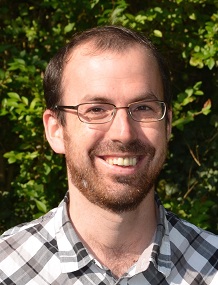
In the world of research, the focus on looking after the wellbeing and progression of everyone within a team, not just the senior members, is essential. With only 29% of researchers in the UK feeling secure to pursue a research career according to Wellcome, it is crucial leaders address the issues present in research cultures before there is a potential loss of talent.
N8 recently had the privilege of interviewing David Kent, a Professor in Stem Cell Biology at the University of York, to gain insights into what it takes to cultivate a healthy research culture.
Professor Kent’s research focuses on blood stem cell biology, spanning from fundamental stem cell work to its clinical applications, particularly in transplantation biology and cancer research. A recent development in his work has been a novel approach to tracking stem cells in people in an unbiased fashion.
Through this, he explained they can create ‘family trees’ of how different blood stem cells are related to one another. Through this, they are able to estimate when and at what rate a cancer has developed. As a result of Professor Kent’s work, major questions within cancer research have been addressed in some of the world’s leading journals such as Nature and Nature Medicine. His important work contributes to a healthier tomorrow for the UK and after our interview it was clear he was also contributing to a healthier research culture at York.
Throughout our conversation, he emphasised the importance of fostering a positive environment that enables scientists as individuals to thrive. One key aspect of a healthy research culture, according to Professor Kent, is prioritising the development of individuals as opposed to mere data production. He highlighted the role of mentorship in shaping young scientists, stressing that the ultimate product of a PhD should be a “well-rounded researcher equipped with critical thinking skills, rather than just a collection of research findings.”
Central to Professor Kent’s approach to leadership is the promotion of teamwork and collaboration. His lab projects are driven collectively, with PhD students and postdoctoral researchers working together. Openness and transparency are valued, with frequent joint meetings to allow everyone to be involved in the decision-making processes and project evolution. He emphasised the importance of creating a supportive environment where researchers feel valued and motivated to collaborate towards common goals. Professor Kent also believes his shift towards a collaborative approach serves to equip members of his team with the relevant skills to flourish in the world of science.
His collective mindset follows through as he addressed challenges such as career precarity among research technicians and assistants in Biology as well as many other fields. Professor Kent advocates for institutional support and stability for technicians, who are often on short-term contracts. He highlighted initiatives within his department to provide permanent positions for them rather than contracts that are fixed or rely on the next grant to come in. These changes not only allow the individuals to have financial security but “security knowing that the faculty has their back and that they’re a valued member.” Like the pieces of a puzzle, every member contributes to the final product and their position within a faculty must represent that.
Looking ahead, Professor Kent emphasised the need for collective action to challenge stereotypes and promote a culture of inclusivity and collaboration in research. A factor that Professor Kent explained motivates this drive for collaborative research is a sense of “guilt” towards those that fund the research (largely charities and government). He shared that within medical research, he has a responsibility to work for the collective good, rather than focus on individualistic gains. His outlook challenges the stereotypical dog-eat-dog mindset that research has historically been paired with.
By prioritising individual development, transparency within his team, and advocating for institutional support, Professor David Kent is an example of how striving for a healthy research culture can serve to promote excellent research. Kent’s prioritisation of the development of researchers as individuals benefits not only the researchers he works alongside with, but the progress of their important research. Research cultures should look after every member no matter how senior; the new researchers of today are the leaders of the future. By taking inspiration from his principles, research institutions can create environments where scientists, technicians and all other team members can thrive, ultimately driving innovation and advancing scientific knowledge.